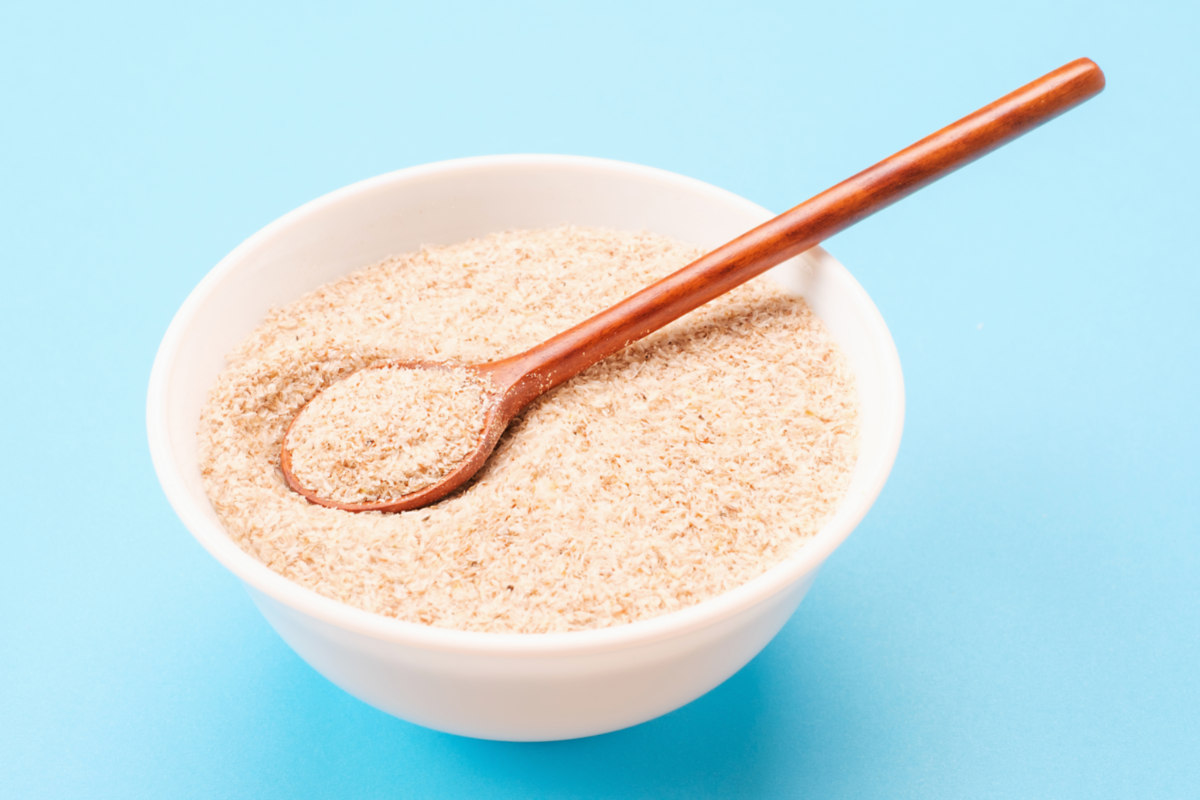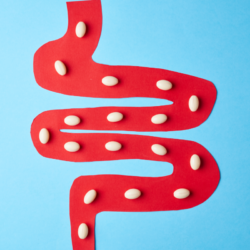Psyllium is an annual herbaceous plant of the Plantaginaceae family, native to India and Persia. Its seedsits seeds, rich in mucilage, have been used for centuries in traditional medicine for their numerous health benefits. Psyllium is now widely used as a dietary supplement for its laxative properties, but it can also be beneficial for heart health, diabetes and weight loss.
Psyllium and gut health
First of all, psyllium is known for its laxative effects. Its high mucilage content makes it ideal for to promote intestinal transit and relieve constipation. By swelling on contact with water, psyllium seeds form a sort of gel that lines the walls of the intestine, thus improving intestinal motility and facilitating the passage of stools. In addition, psyllium can also be useful in preventing haemorrhoids and anal fissures by reducing pressure on the anal veins.
Does psyllium help with weight loss?
Psyllium may also be beneficial for heart health. Its soluble fibre content can help reduce blood cholesterol and prevent atherosclerosis, the build-up of plaque in the arteries. By swelling in the stomach, psyllium can also help regulate blood sugar and prevent type 2 diabetes. In addition, by swelling in the stomach, psyllium can help reduce hunger and promote weight loss.
Are there any side effects?
It is worth mentioning, however, that psyllium can cause side effects such as flatulence, bloating and diarrhoea. We therefore recommend that you start with low doses and increase them gradually to avoid these side effects. In addition, it is important to drink enough water when taking psyllium, to promote its swelling effect and to avoid intestinal blockages.
How much to take?
The dosage of psyllium depends on the product used and may vary depending on the reason for taking it. It is generally recommended to take it one to three times a day with a large glass of water. Studies have shown that taking 7.9 grams of psyllium per day, with or without probiotics, may be helpful in treating Crohn’s disease, but it may make symptoms worse in some people. Studies have also suggested that taking 5 grams of psyllium twice a day can help control blood sugar levels in people with type 2 diabetes, but it is important to follow the product instructions and consult a doctor before changing your dosage.
In summary, psyllium is a plant with many health benefits. Its mucilage content makes it an excellent natural laxative, but it can also be beneficial for heart health, diabetes and weight loss. However, it is important to follow the recommended doses and drink enough water when consuming it to avoid any unwanted side effects.
It is also important to note that psyllium should not be used as a substitute for medical treatment prescribed by a health professional. If you suffer from chronic constipation or any other health problem, we recommend that you consult a doctor before starting to use psyllium or any other dietary supplement.
Sources:
https://www.sciencedirect.com/science/article/abs/pii/S0378874105003983?via%3Dihub







